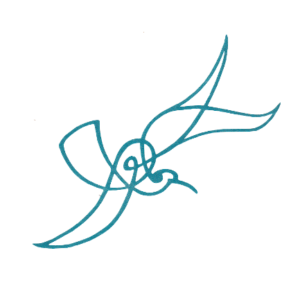WEBINAR SERIES
September 2022 – May 2023
(Artwork from Vanilla Beer)
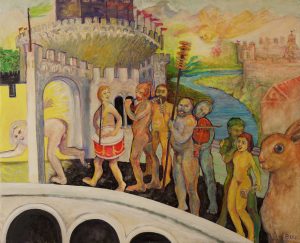
Metaphorum Webinar Series Agenda
Sept 2022- May 2023
5 pm – 6:30 pm UK
Recordings are on YouTube. The link to the video is on the title.
|
Sept 7th, 2022 |
L Lavanderos, A. Malpartida. ‘Ecotomo, Ecopoiesis and No Required Variety’. |
|
October 5th, 2022 |
|
|
November 4th, 2022, noon EST, 4 pm UK (wintertime) |
|
|
December the 1st 2022 |
Olaf Brugman. ‘Ten Synergetic Ideas for the VSM and Management Cybernetics Community’ |
|
January 4th, 2023 |
Vanilla Beer. ‘Interview with Vanilla Beer on her personal learning with Stafford ‘ |
|
February 1st, 2023 |
|
|
March 8th, 2023
|
Jose-Carlos Mariategui. ‘CENTRO and the construction of a mathematical model for Latin America’ |
|
March 15th, 2023 |
Prof Mike Jackson. Alexander Bogdanov, Stafford Beer and intimations of a post-capitalist future |
|
April 5th, 2023 |
|
|
May 3rd, 2023 |
Joe Truss. ‘The Meta architecture of Team Syntegrity for participatory democracy’ |
Joseph (Joe) Truss
“The Meta architecture of Team Syntegrity for participatory democracy”
May 3rd, 2023
I was one of the original co-founders of the company Team Syntegrity Inc. with Stafford Beer. I worked intimately with him spending some 10,000 hours together during the last twelve years of his life. I contributed 2 chapters to his book “Beyond Dispute – the Invention of Team Syntegrity” (Wiley -1994) and delving deeply into the underlying geometry of the icosahedron led the development of a suite of applications of the TS method that removed the constraints of thirty people and five days without compromising the mathematical integrity of the method.
I was President and Board Director from the formation of the company in 1991 and Chairman and Development Director from 1996. I am presently Development Director for requisite innovation for Team Syntegrity and Syntegration.
Stafford designed Syntegration based on the architectonics of the icosahedron. He invented it to mitigate the enormous homeostatic disequilibrium between S3 and S4. He chose the icosahedron because he accepted Buckminster (Bucky) Fuller’s assertion that ‘all systems are polyhedra’, and knew what Plato had discovered and elucidated that there are only five Regular polyhedra. As Stafford needed the equivalence of the regulars and the largest one to accommodate the high variety of the interactions, he chose the icosahedron that has 30 edges (participants), 12 vertices (topics) and 20 faces (FACE planning). This became the Staffgraph Syntegration as described in Beyond Dispute.
Over the past 20 years I have continued to work with my wife and partner, Christine Truss (then Cullen), who was key to developing the logistics systems in the early days of Syntegration events. She helped to develop the roles of organizer, facilitator and logistician and has worked closely with me on developing the structures and geometry of the ‘Tetraverse’, a set of universal structures derived from a first principle approach to understanding complex science without the formal mathematics. Our approach uses cosmology as a frame to validate the geometry and the construction of models to encourage whole body learning and comprehension. We are jointly writing ‘Book of Codes’ about this Universal geometry.
This webinar will deal with the development of the meta-architecture that informs Team Syntegrity and will show how it underlies the regular polyhedra and structure in general.
It will go beyond the findings in the paper: the coherent architecture of Team Syntegrity – from small to mega forms, by Truss, Cullen and Leonard, which will provide a good introduction to the structures of Syntegration.
Paper available by request to Angela.
Raul Gonzalez Sanchez
How to enhance business platforms using the Viable System Model (VSM) in order to face the current and future complexity business challenges
April the 19th 2023 (5:00-6:30 pm)
Along the past 10 years, many successful business models have been oriented towards the development of business networks. One shape that these networks have taken are the so-called “Business platforms” (Amazon, Apple, Netflix, Uber, Alibaba, etc.), which offer to their customers a highly differentiated value proposition, and, at the same time, they offer a high attractive platform to the suppliers. Applying the VSM approach to design business platforms enhances the design and thus, viability of these emerging business approaches. Thus, the VSM provides a very useful systemic perspective for the design of business platforms and networks that the current world has been promoting more and more.
rgonzalez@kuantum.biz
Mobile: +52 1 477 2329888
Raul is a Chemical Engineering graduate (1988) with a Master in Business Administration (1992) both from the from the Technological Institute of Monterrey. He got a PhD in Management, from the University of Hull (UK). He has experience and knowledge of various business specializations, of the most relevant: Development of Small and Medium entreprises (MIB, Trieste, Italy); Information Technology Management (Pink Elephant, Mexico); Balanced Scorecard (Symnetics-Kaplan, Mexico); Theory of Constraints (Eliyauh Goldrat, Mexico); Adizes Methodology (Adizes Institute, Santa Fe, USA); Spiral Dynamics Certification I and II (Dr. Beck, Santa Fe, USA); TetraMap (Yoshimi Brett, Mexico); Systems Thinking (Arturo Inda, Mexico); Project Management (Expert PM Solutions, Mexico); Interpretation of Standard ISO27001/Information Security Management (DNV Certification House, Mexico); ISO 27001 Internal Auditor (DNV Certification House); ITIL Essentials Certification (Exin, Mexico) and Coaching Certification (AIAC, Mexico) .
From 1989 to 1996 Raul collaborated in Flexi Group as Director of Operations of Tannery Company, in developing a working philosophy based on collaborative processes. From 1996 to 1997 was integrated to Guanajuato State Government as Director of Research and Evaluation in the University Centre of Knowledge. From 1997 to 1999 participated in tannery Concurmex as Director of Operations in developing self-regulated work force in whole Operations teamwork. From 1999 to 2002 served as Human Capital Director of Corporate Group CUINBA (Certified Automotive Company, QS-9000) in laying the foundation for development of collaborative work processes with the implementation of ERP-SAP.
From 2002 to 2004, he served as Director of Kuantum Consulting, Company oriented to the processes of: Change Management, Planning and Strategic Management, Human Resources and Finance. From 2004 to 2012 he worked as CEO in Dicta Consulting, company focused on Information Security and IT strategic management. From 2008 to 2012 is as Associated Consultant of Global Vision Group, a company dedicated to comprehensive business transformation for results. He worked also as Associated Consultant in Training and Organizational Knowledge (Naxit) from 2008 to 2012. From 2017 until now, he works in Kuantum as a founder and CEO of this organization focused on Complexity and Strategic management. He has international experience in different countries of American Continent and he worked mainly in the following sectors with medium and big enterprises: bank, retail, telecommunications, government, manufacture and media
CENTRO and the construction of a mathematical model for Latin America
Dr. Jose Carlos Mariategui
March the 1st 2023, 5:00-6:30 pm (GMT, winter time).
In 1968, General Juan Velasco Alvarado’s Revolutionary Government of the Armed Forces (RGAF), brought deep social and economic reforms in Peru. Among some of its most important reforms, the RGAF nationalized strategic resources companies (such as oil, telecommunications) and decreed an extensive land reform. However, reforms were moving fast and the capacity to implement such reforms and structural changes required novel models for implementation, along with analysing their impact.
In 1972 the RGAF decided to create the Centre for the Study of People’s Participation, or CENTRO as it was commonly known, which aimed for interdisciplinary and quantitative research by translating theoretical concepts and field-based research into a model for a creative planning strategy , using social science and mathematical modelling (operations research). The project was the brainchild of Brazilian anthropologist, Darcy Ribeiro and Argentine mathematician Oscar Varsavsky. Their main goal was to feed a computer with all available data (economic, political, social and cultural) in order to develop “mathematical experiments” aimed at drawing the ‘Peruvian model’ which nobody knows exactly what it was and where it could lead. Piloting new ways to analyse Peru’s society aimed in the long term at building a model that could be applicable in Latin America.
José-Carlos Mariátegui (PE/UK) is a writer, curator, scholar and entrepreneur on culture and technology. Studied Biology and Applied Mathematics and holds both Masters and Doctoral degrees in Information Systems and Innovation from the London School of Economics and Political Science – LSE (London). Dr. Mariátegui is the founder of Alta Tecnología Andina – ATA (Lima, Peru), an organization working at the intersection of art, science, technology and society in Latin America. He is a Lecturer at LUISS (Rome), a Board Member of Future Everything (UK) and has published in journals such as AI & Society, Third Text, The Information Society, Telos and Leonardo. His multidisciplinary research embraces media archeology, digitization, video archives and the impact of technology in memory institutions. He has curated internationally for more than two decades. One of his latest exhibitions, Quántica /Broken Symmetries (co-curated with Monica Bello), explores transdisciplinary artistic practice in interaction with scientists at CERN. He recently co-edited a special issue for AI & Society on Cybernetics in Latin America.
Alexander Bogdanov, Stafford Beer and intimations of a post-capitalist future Prof Mike Jackson March 15th, 2023 5:00-6:30 pm
Alexander Bogdanov (1873–1928) was a Russian social theorist and revolutionary activist whose ‘universal organizational science’, or Tektology, is increasingly being recognized as offering stronger foundations for the systems approach than the later ‘general system theory’ of Ludwig von Bertalanffy. Had his thinking not been suppressed by Stalin, the course of Soviet history might have been different. Stafford Beer (1926–2002) was a British management scientist and consultant who was a pioneer in the development of ‘organizational cybernetics’. His best-known engagement was with the government of Salvador Allende, in Chile, seeking to use his ‘viable system model’ to create a socialist society that did not rest on a command economy. This experiment was cut short by the Pinochet coup d’etat. I have found no evidence that Beer was familiar with the work of Bogdanov, and this makes the similarities in their thinking particularly striking. This paper explores the ideas they shared. The work of other writers who have drawn on the work of Bogdanov and Beer, in formulating contemporary visions of post-capitalism, is highlighted.
Michael C. Jackson is Emeritus Professor at the University of Hull and MD of Systems Research Ltd. He graduated from Oxford University, gained an MA from Lancaster University and a PhD from Hull, and has worked in the civil service, in academia and as a consultant. Between 1999 and 2011, Mike was Dean of Hull University Business School, leading it to triple-crown accreditation. Mike has been President of the International Federation for Systems Research and the International Society for the Systems Sciences. He was editor-in-chief of Systems Research and Behavioral Science for 26 years. In 2011, Mike was awarded an OBE for services to higher education and business. In 2017 he received the Beale Medal of the UK Operational Research Society for ‘a sustained contribution over many years to the theory, practice, and philosophy of Operational Research’. In 2022, he received the Pioneer Award of the International Council on Systems Engineering for ‘the development of the foundations of systems engineering as author, educator and intellectual leader in systems thinking’. Mike is known as a key figure in the development of ‘critical systems thinking’ – a topic on which he has published ten books and over 150 articles. His latest book Critical Systems Thinking and the Management of Complexity was published by Wiley in 2019.
ECOTOMO, ECOPOIESIS AND NO REQUIRED VARIETY
L Lavanderos, A. Malpartida
September the 8th, 2022,
5:00-6:30 pm (UK summer time)
It is proposed that evolutionary processes in living units are fundamentally relational, and that they correlate with waste management or no required variety rather than entropy. The conservation of the culture-nature relationship that emerges as ecopoiesis is the relational viability of human organisation.
Leonardo Lavanderos is a Biologist, Doctor of Science from the University of Chile. He is currently Director of Innovation at the Center for Studies in Relational Theory and Knowledge Systems, and Professor at the Tec Business School in Monterrey, Mexico. He is co-responsible with the Technological Institute of Bolivia for the launch of the International Center for Research in Relational Cybernetics. He developed the relational theory of knowledge together with Dr. Alejandro Malpartida. He developed the Sustainability-based Systemic Relational Viability model for the coherence and congruence of relational networks. He created the concept of Strategic Relay Process Intelligence (Relational Systems). From this conceptual battery, multiple consultancies were developed at a national and international level. In the field of Public Management, he designed the bases of the National Territorial Information System. He developed and designed the KAWSAY System for the exchange of varieties in networks. He designed and simulated the Campo de Hielo Sur Division for the time of the conflict during the Government of Eduardo Frei Ruiz Tagle. He held the position of Scientific Coordinator of the Center for Space Studies of the University of Chile.
Alejandro Malpartida has worked in both the public and private spheres. He has participated in various consultancies related to strategic environmental planning evaluation studies and environmental impact studies of medium and large works, from 1995 to the present, both in Argentina and abroad. He has been responsible for specific IDB projects and technical coordinator in GEF projects related to pollution prevention under the IBRD and SAyDS. He participated in the formulation of plans and programs related to basins, as well as evaluations of their status, being Scientific Advisor to the National Ombudsman. He has worked as head of the Quality, Environment and Safety Management in the field of energy in general and electricity in particular. He has done includes training in biodiversity issues for the hydrocarbon exploration and exploitation area. He is currently President of SINTESYS Corporation. He is also a member of the Advisory Academic Council of the Department of Environmental Law of the Argentine Association of Administrative Law, Argentine Association of Administrative Law. Alejandro is a Professor of the master’s degree in Environmental Engineering (Applied Ecology, Natural Resources and Energy), and President of the Ethics Committee of the Halitus Medical Institute
Jan De Visch
Coherent Action: Linking Role and Work Contributions
to Each other Through Real-Time Dialogue.
October the 5th 2022, 5:00-6:30 pm (UK summertime)
“The session focuses on the dialogical dimension of collaborative action. It is argued that within each of the five systems of Stafford Beer, collaborative coherence is characterized by asymmetry. Every team experience downward momentum, which pushes destabilization away to the familiar and unambiguous, while upward momentum develops further, tests, and supplements new ideas. An oscillation toward and away from important focal ideas is seen as a constituent of how coherent action arises: there is a continuous dance between upward and downward dynamics. Finally, the session proposes ways to facilitate and enhance dialogue processes to develop real co-intelligence.
The ideas build on the best scientific research on individual, team, and organizational development. The findings reveal the relationship between system design complexity (which differs depending on the stratification level) and how individuals interpret those challenges. Perspective-taking determines how Stafford Beer’s five systems unfold in practice. Differences in perspective-taking determine how collaborative thinking in the designed systems occurs practically and with or without breadth and depth. Jan will illustrate the dynamics with two examples from actual recent organizational development projects.”
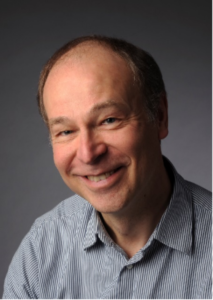
Jan is an Exec. Professor Organizational and Human Capital Management at the Entrepreneurial MBA at Flanders Business School (by Catholic University Leuven), since 2004. He does applied research on the relationship between dialogical practices, collaborative structures, and collaborative intelligence in organizations.
His recent publications (books based on research, full overview of 115 articles and 11 books available on demand) include several recent books on Dynamic Collaboration, Self-organization, and Collaborative Intelligence (2018 -2022). He is the founder and managing director of Connect & Transform BVBA (Belgium), since 2000 (www.connecttransform.be); Co-founder and managing partner of Making Strategy Deliver (USA, Florida), since 2011 (www.makingstrategydeliver.com); Co-Founder & Chief Ecosystem Officer Dynamic Collaboration App (since 2018) (http://dynamiccollaboration.app/) .
Jan is the President of the Belgian Chapter of the “Systems & Complexity in Organizations” network (since 2019), and Board Member of several international research groups (Canada, USA). He was President of the Board for ‘De Beitel’, social economy company, (2003-2010); Board member of the Flemish Employers Association (region Antwerp-Mechelen) (www.etion.be) (2000-2010); and Honorary Board Member of Metena (Think thank of entrepreneurs in Flanders) (www.etion.be) (2005-2009). Jan holds a master’s in psychology from the Catholic University in Leuven and other postgraduate degrees in management, corporate governance and Corporate social responsibility (CSR), Executive remuneration (Vlerick Management School, 2002) He has several certifications in process & change facilitation tools.
Jan De Visch built his career in Human Resources, as Human Resources Director of De Vaderlandsche, the Group Franki-Van Roey and Sanoma Magazines. In each case he developed a Human Resources strategy that supported and reinforced the growth strategy of the company. He was involved in several integrations and restructuring processes from a corporate role. He has focused recently on Organisational development and complex transition coaching are the main themes through which Jan helps companies to realize their full potential. In particular, in facilitating Business Model transitions, Organisational culture and change, Co-creation, City Transition Projects, Organisation Design, cross cultural issues and diversity, business strategy and education, and coaching complexity.
E-mail : Jan@connecttransform.be
Dr Paul Pangaro
Designing Conversations for Variety
November 4th2022, noon EST, 4 pm UK (wintertime)
There are countless challenges to managing complex organizations, including the need to design its processes with variety explicitly in mind. Of course, one approach is the VSM.
In this session a complementary approach is proposed, and critique invited. This approach distinguishes the classes of conversation that must reach agreement to coordinate the action of an organization. Of course, these conversations must pay attention to variety.
Pangaro will present this model of “designing conversations for variety” and propose how it maps to the VSM, where it may offer additional resilience. The goal of the presentation is to engage the participation of the attendees and to draw connections between the VSM and this conversation model, in hopes of illuminating both.
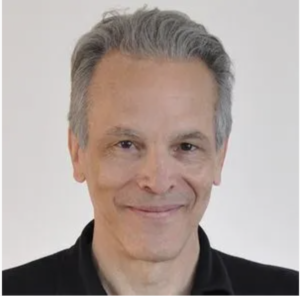
Paul Pangaro is president of the American Society for Cybernetics. His career spans research, consulting, startups, and education. Before his current role as Visiting Scholar in the School of Architecture and the School of Design at Carnegie Mellon University, he was Professor of the Practice in the Human-Computer Interaction Institute on the same campus. He has worked with and within startups in New York and Silicon Valley, in product and technology roles. His past consulting clients include Du Pont, Nokia, Samsung, Instituto Itaú Cultural (São Paulo), Ogilvy & Mather, and PoetryFoundation.org. His writing explicates “designing for conversation” from his research and implementations of software and organizational processes. His B.S. in Humanities/Computer Science is from MIT and his Ph.D. in Cybernetics with Gordon Pask is from Brunel University. His work can be found at http://pangaro.com/.
Olaf Brugman
‘Ten Synergetic Ideas for the VSM and
Management Cybernetics Community’
Dec 1st, 2022, 5:00- 6:30 pm (UK wintertime)
The leading question for this webinar is: “What can we do to enhance the applicability of the Viable System Model and Management Cybernetics?” Ten ideas will be presented to explore opportunities to take research, education, and application in practice of the VSM and Management Cybernetics a step further. The ideas are inspired by agile software development, pattern language architecture approaches, and from management practice in cooperative organizations. It will address the VSM as a tool, dissemination of knowledge and know-how, and its practical application. The webinar aims to share notions around the VSM and Management Cybernetics that participants can connect to their academic and professional activities.
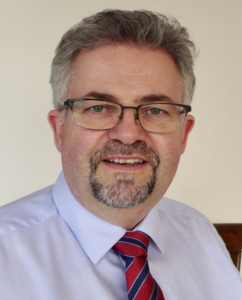
Dr. Olaf Brugman has been a systems practitioner ever since he first got to know the Viable System Model in 1985. In the systems sciences community, he currently acts as the Vice President Conference on the board of the International Society for the Systems Sciences. His main professional engagement is with Rabobank, at which he serves as the head of sustainability policy & risk. He holds a master’s degree in public administration from Twente University and a doctorate from Radboud University Nijmegen, both in the Netherlands. He currently lives in and works from The Hague.
Past Metaphorum Webinars 2022
(1st Semester)
Prof. Jose Perez-Rios
How to make a fast diagnosis of a complex organization with Organizational Cybernetics? Framework and Tools.
May the 11th, 2022, 5:00-6:30 pm (GMT summer time)
In this presentation, we will comment on using a framework to help quickly diagnose any organization’s viability or provide the guidelines for its design. We will describe some specific tools and software that may help in those tasks with some examples.
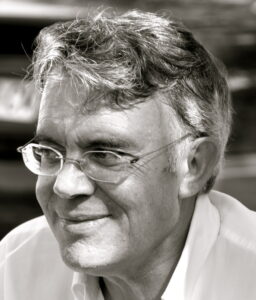
Jose Perez Rios is a Full Professor of Business Organization. He has been Director of International Relations (2000-2006) at the University of Valladolid (Spain). He has also been the Technical Director of the HORIZONTE-2000 project, and Founder and Director of the IBERFORA Project (sponsored by the BSCH) at the University of Valladolid. His research is focused on applying system dynamics and organizational cybernetics to the study of complex systems and the development of software tools that can facilitate the application of different systemic approaches and knowledge capture, communications, and information exchange. He has also been responsible for the creation of the VSMod® software (to facilitate the application of the Organizational Cybernetics and the Viable System Model).
He has worked on multiple national and international research projects. He has more than 80 publications in national and international journals and congresses, and five books, including “Diseño y diagnóstico de Organizaciones viables” (Iberfora2000, 2008) and “Design and Diagnosis for Sustainable Organizations. The Viable System Method” (Springer, 2012). Honorary distinctions: “The Kybernetes Research Award” (2006) awarded by the World Organization of Systems and Cybernetics (WOSC), “Outstanding reviewer” for the journal Kybernetes and the “Honorary HSSS Award as Distinguished Scientist” (2007) by the Hellenic Society for Systemic Studies (HSSS). He is also a Fellow of the HSSS, a member of the Board of Directors of the WOSC (World Organisation of Systems and Cybernetics), and Academician of the International Academy of Systems and Cybernetic Sciences (IASCYS).
Roger Duck and Jane Searles
Designing Freedom Together
May 25th, 2022. 5:00-6:30 pm UK (BST)
This webinar will present a recent paper from the authors, which tells the story of developing, collaboratively, a visionary whole system transition architecture within a UK regional transport context in 2021. It is writ- ten, in the first person, by the two authors whose focus of interest is in complex living systems, characterised by emergence, abundant creativity and surprise. They view design as an inherent aspect of ongoing change, which can be built intrinsically into the living system, not as a stage in a sequential procedure. They view themselves as participants in the system as well as providers of the under- pinning methods.
The objective of the work was to enable evolutionary systemic change, which holds the potential for transformation. The overall approach was rooted in collaborative visioning. The authors see vision as an aspirational and yet responsIble sense of the future which is shared by multiple people, and acts as a reference point for developing agreement and coordinating action. The architecture was developed iteratively in an outside-in approach starting from the systemic con- text and aims to enable everyone to be both choreographers and dancers, find- ing and optimising their contribution based on their unique capabilities and characteristics.
The approach reframes boundaries as opportunities for mutual learning, in contrast to barriers to be overcome or connections to be engineered, and it raises questions of where boundaries could be designed, including the boundaries around organisations themselves. It enables collaborative activities to be identified which cannot be handled by transactional interaction alone.
The authors welcome dialogue to feed a process of mutual learning with others.
Roger Duck works mostly as a consultant through his own business, drawing on systemic ideas to help people learn together to take effective action. In recent years his work has focused on processes of change and transition in organisations, and the wider systems in which they operate. He is motivated to humanise the way we organise, and he has been particularly influenced by Stafford Beer’s thinking. He has consulted to a wide range of public and private sector organisations, especially in relation to transport, energy and telecommunications, working as a facilitator, researcher and innovator to support processes of change. He has been Director of Professional Development for SCiO (Systems and Complexity in Organisation). He served on the steering group of Great Britain’s Future Power System Architecture (FPSA) project (phase 2). He also has experience in local community development through his association with the International Futures Forum (IFF) which led him to co-found an experiment in relationship-building for community wellbeing. He is certified by the International Bateson Institute (IBI) as a warm data host. He and Jane Searles published an article called Designing Freedom Together in 2021, describing a case study of enabling collaborative exploration of transformational systemic change. He can be reached at roger.duck@mapsar.co.uk.
Jane has been continuously developing a systemic modelling approach based on co-design workshops over the last 30 years, in the role of systemic architect. The basic method was developed originally within International Computers Ltd which was an amalgamation of UK Computer Companies in the 1960s, and later in Fujitsu which took over ICL. The modelling approach was originated by Graham Pratten as a business process oriented approach to software architecture design. Jane adapted this approach in the early 1990s to address whole systems, which had customers / citizens at their heart and focussed on people and effective teamwork (and enabling technology where useful). Having been introduced to the Viable System Model in the early 1990s, Jane found that both approaches could usefully be combined to address transformative change towards a visionary future where citizens are central, using the systemic modelling approach to question deeply help assumptions about the way things were done, before proceeding to a systemic transition architecture, comprising multiple VSMs playing roles in an overall system. The approach uses the VSM, in design mode, to structure models of coherent systems which span organisational boundaries and deliver on customer needs. She used this approach, for example, in modelling the overall Criminal Justice System, and the contribution of Magistrates Courts and of Probation to this system as a coherent whole. Jane was the Membership secretary and Board secretary for SCiO for many years, where she first met Roger, and they have been collaborating using and developing this approach over the last 10 years. They have worked together on a community project, ‘Thriving in Fife’ with International Futures Forum (IFF) and have previously used the approach outlined to model an aspirational UK power system which addresses the issues facing communities, industry and commerce and our planet. They have recently published ‘designing freedom together’ which focusses on systemic modelling work done prior to developing systemic designs based on VSM principles. Jane can be reached on: jane.searles@btinternet.com.
